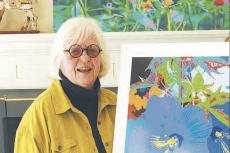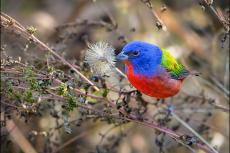“Even in the grave, all is not lost,” wrote Edgar Allen Poe, but Poe never encountered the all-powerful New York developer and real estate lobby that ultimately helped persuade Gov. Kathy Hochul to veto a popular gravesite-protection bill on Dec. 30.
The Unmarked Burial Grave Site Protection Act, which had been militantly supported by the Shinnecock Nation in Southampton, would have required that unmarked gravesites unearthed during construction or home renovation be protected and preserved. Developers or homeowners would be forced to stop work while the office of the New York State Archaeologist catalogued the remains. The findings would be sent to a Native American review committee to determine whether any Indigenous persons or groups might have an interest in the remains.
In vetoing the bill, New York remains one of three states in the country that have no laws protecting unmarked burial sites. In a Jan. 2 statement, the Shinnecock Graves Protection Warrior Society joined with the organization Honor Our Indigenous Ancestors to decry Governor Hochul’s veto, calling it “a slap in the face in line with centuries of brutal settler colonialism and violent land theft,” and pledging to “persevere in our fight to preserve our lands from desecrating developers.”
Ms. Hochul’s veto statement highlighted the rights of property owners, who “would have no authority over their real property and would be forced to accept decisions that impact their property.” She said that while she recognized the need to address the handling of human remains “in a way that is respectful to lineal descendants or culturally affiliated groups‚“ any process “that also involves the private property of New Yorkers must appropriately protect both interests,” which she said the bill in question did not.
The governor added, however, that after working with the State Senate and Assembly, “which passed the bill with near-unanimous support,” she was “committed to continuing to work in the next legislative session on this issue.”
Even as she was vetoing the burial bill, she signed another graves-related bill that will allow New Yorkers to enlist in so-called “human composting” after death, joining a handful of states that have legalized the practice since 2019. This eco-friendly burial method eschews caskets, concrete liners, and embalming, and instead allows burial in a vessel containing wood chips, alfalfa, and straw.
According to Treehugger.com, “the vessel is then sealed and placed in a temperature-controlled space, where it is supfplied with oxygen” to accelerate the composting process. The composted soil is then given to the deceased’s family to keep or dispose of as it pleases, “or it can be donated to farms or [to] conservation efforts as a sustainable alternative to traditional burial or cremation methods.”
The East End preservationist Zachary Studenroth told The Star recently that the work he does to preserve and amplify historically significant cemeteries in the area, including the recently state-designated historical Van Scoy plot in Springs, ties into the human composting bill. It harks back to a time when people would be buried on their own property, rather than in a cemetery.
“That was never outlawed,” Mr. Studenroth said. “As far as I know, you’ve always been able to bury somebody in your backyard — it wasn’t illegal, but very much frowned upon.”
Church-related or state-sanctioned cemeteries “didn’t show up until the late 19th century,” he said, by which time the death-obsessed Edgar Allen Poe had himself passed into a sacred realm where “the boundaries which divide life from death are at best shadowy and vague,” if not subject to political pressure from Albany lobbyists.



